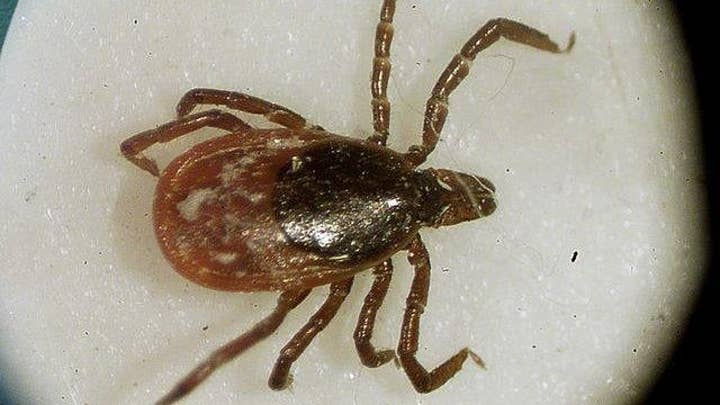What is Lyme disease?
New reports estimate that every state in the U.S. has seen cases of Lyme disease. What exactly is the tick-riddled disease and how can you be sure you have it?
Every state in the nation reported residents who tested positive for Lyme disease, according to the most recent Quest Diagnostics study released last week.
No longer is the tick-borne disease simply an issue for people living in New England, where it first appeared and is still prevalent.
The study analyzed 6 million blood tests administered by doctors checking for Lyme disease, The Washington Post reported.
EBOLA OUTBREAK IN CONGO GROWS: AT LEAST 3 KILLED
The disease is still mainly prevalent in the Northeast, with Pennsylvania reporting the most cases last year — 10,001 cases, effectively raising the state's positive results for Lyme disease by 78 percent since 2016.
For reference, the number of confirmed cases in the U.S. in 1995 was just over 10,000. There were a little over 25,000 just two decades later, in 2015.
Quest's study found that U.S. cases were still concentrated in six New England states ─ Connecticut, Maine, Massachusetts, New Hampshire, Rhode Island and Vermont ─ with those six, plus Pennsylvania, accounting for 60 percent of confirmed cases last year.
Florida and California, places not traditionally known for risk of Lyme disease, saw cases spike 77 percent and 194.5 percent since 2015, the Post reported.
The disease, which is not always easy for doctors to diagnose, is caused by the bacterium Borrelia burgdorferi and results in symtoms including fever, headaches, fatigue and a bulls-eye rash. Untreated cases can result in joint problems, or issues with the heart or nervous system.
GROUP STEPS IN TO HELP GIRL WITH CEREBRAL PALSY ENJOY DAY AT BEACH
In the days following Quest's results, CNBC reported on a French company called Valneva, which is working to develop a vaccine for Lyme disease and has recently received fast-track status from the FDA.
Described as another breakthrough, a proposed test for Lyme disease, called Nanotrap and developed by Ceres Nanosciences, uses a urine sample to detect the bacteria that leads to Lyme disease. Hoping to soon get FDA approval, the test could be available by 2019.

